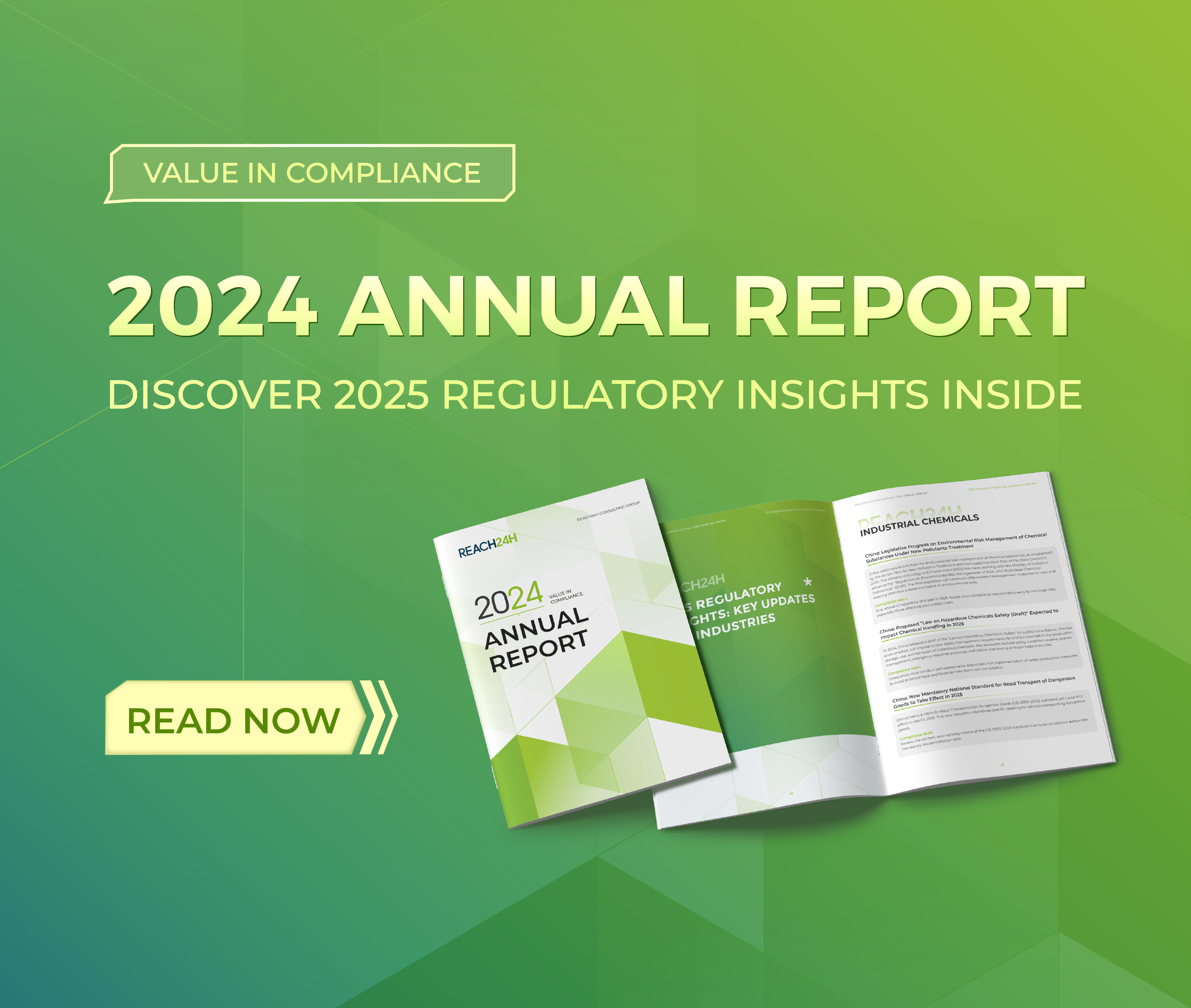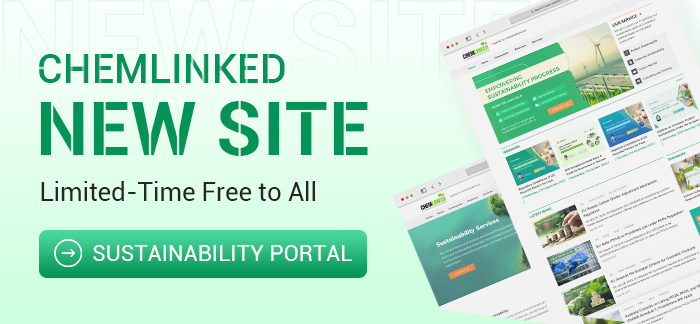FCM GreenScreen Certification®: Promoting Sustainability in Food Contact Materials
PFAS in Food Contact Materials: Posing Human Health Risks
Food contact materials are closely related to people’s daily lives, directly impacting food safety. The significance of ensuring the safety of materials that come in contact with food cannot be overstated.
Per- and polyfluoroalkyl substances (PFAS) are widely used in many materials in contact with food due to their exceptional water, oil, and heat resistance properties. However, PFAS have been proven to migrate from different materials in contact with food (such as paper and plastic) into the food, causing many adverse effects on human health, including developmental and reproductive toxicity, neurotoxicity, hepatotoxicity, genotoxicity, immunotoxicity, and carcinogenicity. In addition, the persistence and bioaccumulation of PFAS in the environment have also had a long-term impact on the ecosystem.
In addition to PFAS, substances such as bisphenols and phthalates, which are substances of very high concern (SVHC), are also used in materials in contact with food because of their durability, corrosion resistance, and plasticity. These substances can disrupt the endocrine system, leading to adverse health effects.
As more and more evidence indicates that the use of these chemical substances in food contact materials can have a serious impact on human health and the ecological environment, government regulatory measures for PFAS and SVHC are also gradually increasing.
Consumer awareness and demand for healthier lifestyles have further pressured industries to move towards safer and eco-friendly practices. In recent years, many chain brands, including Burger King, McDonald’s, and Starbucks, have committed to phasing out PFAS in their food packaging materials, which puts forward new requirements for upstream food contact material suppliers.
The Role of GreenScreen Certification®
In response to these challenges, the U.S. non-profit organization Center for Environmental Health (CEH) and Clean Production Action (CPA) have jointly established the GreenScreen Certified® standards for both single-use and reusable food contact materials in 2021 and 2023, respectively, with the aim of eliminating PFAS and other substances of very high concern in food contact materials.

(Image source: GreenScreen Certified®)
GreenScreen Certification® is an eco-label for environmentally friendly products that is widely trusted by brands, purchasers, governments, and non-governmental organizations. GreenScreen Certified® allows brands of food contact materials to demonstrate their preference and requirements for green chemicals. Certification by GreenScreen indicates that the food contact materials are free from PFAS and other substances of very high concern. Manufacturers can use the GreenScreen certification standards to develop and promote food contact materials that do not contain PFAS and other substances of very high concern.
GreenScreen Certification Process and Requirements for Food Contact Materials
Food contact materials eligible for GreenScreen certification include both disposable and reusable food service utensils, reusable food packaging and cookware and materials (such as coatings), such as plates, cups, bowls, trays, plastic straws, disposable gloves, lunch boxes, cutlery, pots, etc.; it also includes thermal paper, such as receipts. Companies can apply for certificates at three levels—Silver, Gold, and Platinum—based on their business needs, with higher levels demanding more stringent documentation requirements.
For example, the documentation requirements for GreenScreen Certified® disposable food service utensils are as follows:
| Category | Requirement | Silver | Gold | Platinum |
| 1. Product Information | (1) BILL OF MATERIALS | √ | √ | √ |
| (2) List of chemical substances, including:
a) Any intentionally added additives in the formula with > 0.0001% by mass (1 ppm); and b) Impurities and residues in the additives at ≥ 0.01% by mass (100 ppm) |
√ | √ | √ | |
| 2. GreenScreen Hazard Assessment | Using the GreenScreen List TranslatorTM for screening:
1)Any intentionally added compounds in homogeneous materials with a concentration greater than 0.0001% by mass (1 ppm). 2)Impurities and residues in homogeneous materials with a concentration of 0.01% by mass (100 ppm) or greater. |
√ | √ | √ |
| Using GreenScreen® for Safer Chemicals for assessment:
1)Any intentionally added compounds in homogeneous materials that exceed 0.0001% by mass (1 ppm). 2)Impurities and residues in homogeneous materials that are at or above 0.01% by mass (100 ppm). |
√ | √ | ||
| The compounds screened have not received an LT-1 rating from the GreenScreen List Translator™. | √ | √ | √ | |
| The assessed substances have not received a GreenScreen Benchmark-1 score. | If there is a If there are freely available and publicly disclosed GreenScreen assessment results, they should be given priority.
|
√ | √ | |
| None of the evaluated substances achieved GreenScreen Benchmark-1, Benchmark-2, Benchmark-2DG, or Benchmark-2 TP scores. | √ | |||
| 3. Restricted Substance List (RSL) | The product complies with the Restricted Substances List (RSL) requirements and thresholds. | √ | √ | √ |
| 4. Product Level Analytical Testing | The product meets the analytical testing requirements. | √ | √ | √ |
| 5. Recyclability and/or compostability | The product has recyclability and/or compostability. | √ | √ | √ |
To obtain GreenScreen certification, the applying company must disclose all chemical ingredients in the food contact materials. Product reviewers will conduct screenings and assessments based on the level of certification. If the ingredients contain substances on the restricted substances list, they must meet the corresponding threshold requirements, including PFAS, bisphenols, phthalates, etc. For disposable food service utensils, in addition to meeting the relevant testing requirements, the product or material must also be recyclable or compostable. For reusable food packaging, food service utensils, and cookware, in addition to meeting the relevant testing requirements, the product or material must also be reusable and meet the requirements for recyclable components.
FAQs on GreenScreen Certification for Food Contact Materials
Here are some questions that are of interest to applying companies, which are also shared with you for your reference:
Q1: What does “reusable” mean in the certification standard for reusable food contact materials?
A1: Reusable refers to products that meet the GreenScreen certification standard for reusability, requiring products to be durable and suitable for long-term repeated use. Products made of polymer materials and products with polymer coatings or surface treatments (regardless of the type of substrate) must be tested to prove that they can maintain their shape, structure, and function after 780 cleaning and disinfection cycles as stipulated in the California Health and Safety Codes. Products made only of ceramic, porcelain, glass, or non-foil metal and not coated with any polymer coating or surface treatment do not need to be tested to prove reusability.
Q2: What types of analytical tests must the product undergo to obtain certification in the certification standard for reusable food contact materials?
A2:To obtain certification, applicants must demonstrate that their products do not expose customers to harmful chemicals. This can be achieved by evaluating the materials, the manufacturing process of the products, and conducting analytical tests.
Products must undergo migration testing to measure whether any concerning chemicals leach from the material into food under normal use conditions. This is done by placing a food simulant (such as oil) in the product and measuring how much of the harmful chemicals can be detected in the oil after a specified period and at a certain temperature. Since reusable food utensils are used repeatedly, it is crucial to understand whether harmful chemicals leach from the material into the food.
In addition, plastics and polymer materials must undergo composition testing to determine if the material contains any concerning chemicals, and reusability testing is also required to simulate whether the product will break down during normal use.
How REACH24H Can Help
As a CPA-approved GreenScreen Certified® review organization, REACH24H can provide GreenScreen Certified® certification for disposable and reusable food contact materials, assisting companies in preparing certification materials and obtaining GreenScreen certification certificates. If you have any related needs, please feel free to contact REACH24H.
Furthermore, REACH24H has recently successfully passed the audit of AliExpress and has become an officially certified third-party compliance service provider of AliExpress. The GreenScreen food contact material certification service is now officially available, and you can also learn about or consult this service through the AliExpress website.
Reference Links
- REACH24H: Asia’s First Licensed GreenScreen®Profiler for Sustainable Chemical Management
- REACH24H Partners with AliExpress to Empower Sellers in Going Global
Contact Us
If you have any questions regarding food contact material compliance, please feel free to contact us.
Tel: +86-571-87007555 | Email: customer@reach24h.com






